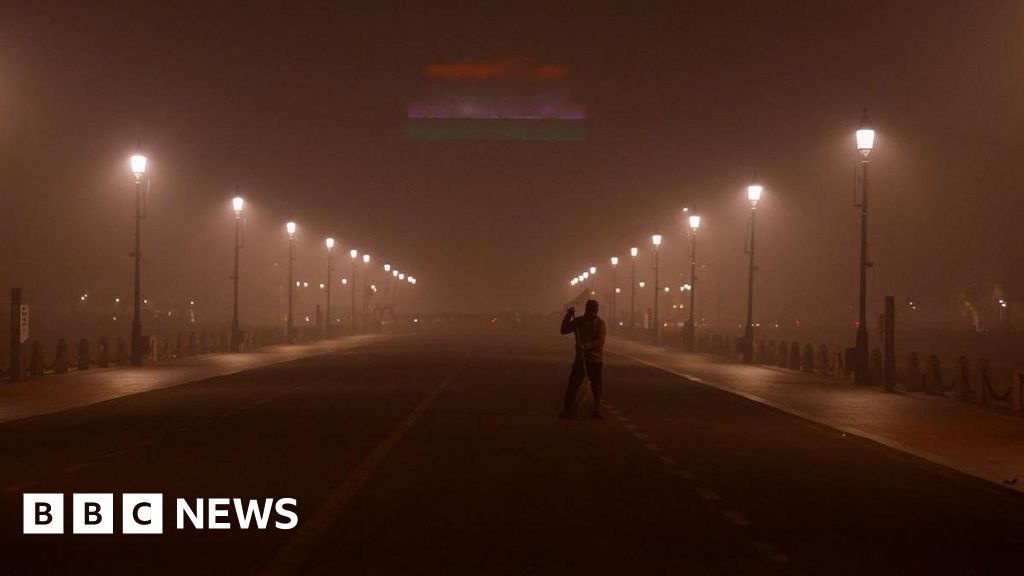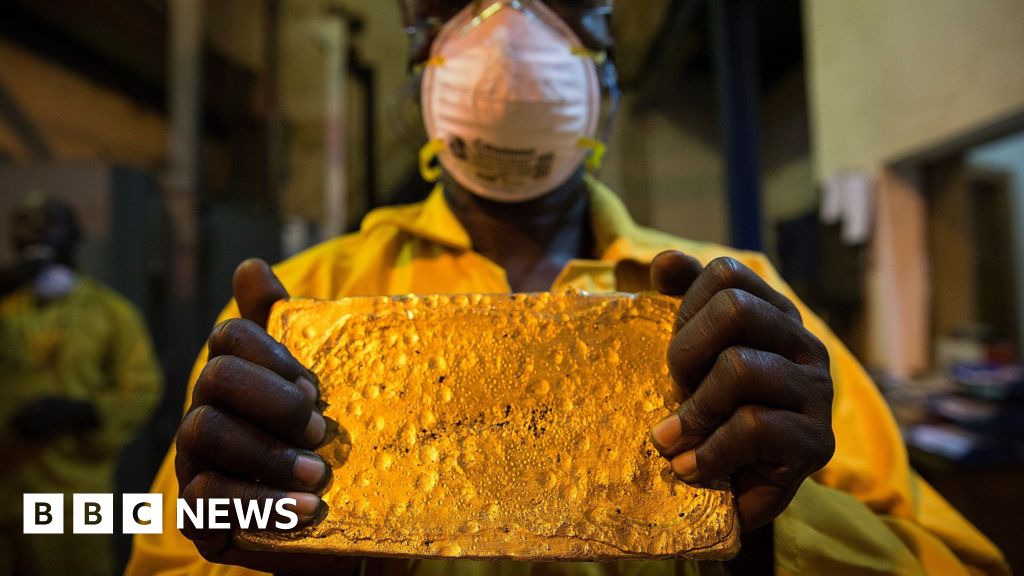ARTICLE AD BOX
By Yolande Knell
BBC News, Jerusalem
Image source, Reuters
Image caption,Israeli and Palestinian flags are powerful symbols of each other's nationhood
Israel's parliament has voted in favour of a controversial bill which could see the display of "enemy flags" - including the Palestinian one - being outlawed at state-funded institutions.
The Knesset approved the legislation in its preliminary reading, with 63 votes for and 16 against. Three further votes are needed for it to become law.
A furore over flags had already reached new heights on Wednesday with a giant billboard showing a Palestinian flag - put up by an Israeli pressure group - being removed from a skyscraper just outside Tel Aviv, while an Israeli one remained in place.
An image that tells the entire story: Workers remove a Palestinian flag that was put up next to an Israeli one from a building in Ramat Gan. Both were put up as part of a coexistence campaign by a liberal Israeli org, but following outrage, ONLY the Palestinian flag was removed. pic.twitter.com/KZg1XGeDKz
— Edo Konrad (@edokonrad) June 1, 2022The BBC is not responsible for the content of external sites.View original tweet on Twitter
The developments follow recent actions by Israeli forces against displays of the Palestinian flag - with soldiers even guarding Jewish settlers as they took them down in a town in the occupied West Bank.
The bill to ban "the flying of the flags of an enemy state or the Palestinian Authority" (PA) was introduced by Eli Cohen, from the right-wing opposition Likud party.
"Anyone who sees himself as a Palestinian will receive from us all the help required to move to Gaza in a one-way route," he tweeted.
Israeli analysts predict that further readings of the bill will now be delayed by the Israeli governing coalition which includes parties from across the political spectrum.
An Israeli debate over the legality of the Palestinian flag was prompted by events at which they were waved, including at Ben Gurion University in the Negev, to mark Nakba Day.
The date, which falls on 15 May each year, commemorates the mass displacement of Palestinians in the war which followed Israel's establishment in 1948.
The left-wing Israeli NGO, Mehazkim, paid to put up huge Palestinian and Israeli flags on the side of the Israel Diamond Exchange building in response to the parliamentary vote.
Writing above in Hebrew read: "We were meant to live together", with a similar sentiment expressed in Arabic.
"Oops, did we do that? Actually, yes. Because we were all meant to live together and it should probably be mentioned to anyone who has forgotten," the group tweeted.
The mayor of Ramat Gan, where the skyscraper is located, initially said that legally the local authority was unable to act in response to Israelis' complaints. However, workers were then sent to remove the Palestinian flag, leaving the Israeli one intact.
Cat and mouse
Flags are always potent symbols in the Israel-Palestinian conflict, but high-profile news stories in the past few weeks have shown them causing new levels of contention.
Israeli police beat and kicked pallbearers carrying the Palestinian flag-draped coffin of the Al Jazeera journalist Shireen Abu Aqla, who was shot dead while covering an Israeli army raid in Jenin refugee camp on 11 May. This nearly caused them to drop the coffin.
Police said officers "were forced to use riot dispersal means" at her funeral in Israeli-annexed East Jerusalem.
Israeli officers also seized Palestinian flags from mourners and smashed the window of the hearse carrying Ms Abu Aqla's body and removed a Palestinian flag.
Palestinian flags are not currently illegal under Israeli law. However, Israeli police regularly prohibit them in public spaces and confiscate them from Palestinians waving them, particularly in bitterly contested East Jerusalem.
Both the Israeli police and the army claim the authority to remove any object that might cause clashes - including flags.
In recent weeks, Israeli soldiers have been filmed taking down Palestinian flags from lampposts and guarding Jewish settlers as they took down flags in in the Palestinian West Bank town of Huwara.
One video, which went viral on social media, showed soldiers keeping angry Palestinian residents back by pointing guns at them and using a stun grenade.
Such a step is unusual as Huwara - on a main road between Ramallah and Nablus - is under PA administration.
The Israel Defense Forces (IDF) told local media that its forces arrived at the scene after a violent confrontation started between settlers and Palestinians. It later said that soldiers removed Palestinian flags there to try to prevent further clashes.
This week, a BBC Arabic team filmed Israeli soldiers removing a Palestinian flag shortly after a member of the local municipality, Saddam Dmeidi, had put it up.
"It's become a battle of cat and mouse," Mr Dmeidi said. "At the end it's about who's most established here and hopefully the owners of the land will win and the flag will stay up in Huwara."
Israeli action against Palestinian flags could also been seen during Sunday's nationalist Jerusalem Day Flag March.
Israeli police chased after a handful of Palestinian activists who brought out their own flags and Palestinians celebrated as, for a short time, a drone flew a Palestinian flag over Damascus Gate.
Image source, EPA
Image caption,A drone carried a Palestinian flag over the walls of Jerusalem's Old City during Israel's Flags Day march
For decades, Palestinians have found innovative ways to get around Israeli restrictions on the waving of their flag, which dates to the 1916 Arab Revolt against forces of the Ottoman empire.
In Palestinian iconography, the watermelon - a local fruit which has the same black, white, green and red colours - is often used subversively as a symbol, to stand in for the flag.

 2 years ago
26
2 years ago
26








 English (US)
English (US)